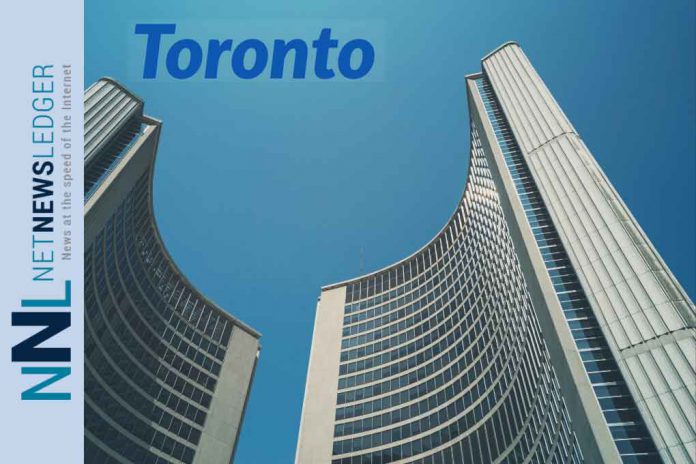TORONTO – “Council approved a responsible budget that preserves and invests in City services, including the TTC, Toronto Police and Toronto Public Library, while keeping the property tax increase at the rate of inflation. I’m proud this budget includes funding to speed up work on the Relief Line by at least two years and to begin the Housing Now plan to build 10,000 more housing units on 11 surplus City-owned sites. This budget ensures we will have more recreation spaces for families, more youth hubs, more police officers, and more improvements to TTC service,” says Mayor John Tory.
Overall, the 2019 budget tax increase is 1.8 percent. There is a 2.55 percent increase for residential properties, 1.28 percent increase for commercial properties and 0.85 percent for industrial properties, consistent with Council’s longstanding tax policy to enhance the City’s business climate. There is no increase for multi-residential/apartment buildings as per provincial legislation.
Toronto City Council has approved a 2019 tax and rate combined operating budget of $13.47 billion and a 10-year capital budget and plan of $40.67 billion. The budget enables the City to provide more than 150 distinct services that are supported by capital assets and infrastructure worth more than $94 billion.
The 2019 budget preserves current service levels and continues investments in Council-approved priorities, strategies and plans such as poverty reduction, youth equity, housing, environmental sustainability, city-building and mobility initiatives. It maintains affordability with a property tax increase in line with inflation and incorporates the results of Auditor General recommendations to realize savings. Through the 2019 budget process, programs and agencies used equity responsive budgeting principles, analyzing the impact of budget changes on equity-seeking groups such as women and people with low incomes. This analysis was included in public budget materials.
Residents will pay an additional 0.5 percent for the City Building Fund, to support infrastructure projects such as transit and housing. As part of the City’s strategy to enhance Toronto’s business climate, there will be an additional increase of 0.53 percent for residential properties, bringing the total municipal tax increase to 3.58 percent. The average house assessed at $665,605 will incur an additional $104 in municipal property taxes for a total of $3,020 in 2019.
In order to mitigate the impact of lower Municipal Land Transfer Tax (MLTT) projected revenues in 2019, the City is temporarily reducing the current annual capital contribution. Going forward, staff will be developing a strategy to redirect a portion of the MLTT to fund capital costs and reduce the City’s reliance on the MLTT to fund ongoing operating costs.
In addition to ongoing expense management, a number of balancing strategies were used, including limiting City operations costs and assumed federal funding to address an increase in refugees and asylum seekers in the City’s shelter system. Council also approved a TTC Board-recommended $0.10 TTC fare increase, a 2.2 percent increase for garbage collection and a 3 percent water rate increase.
Council has approved a phase-out of the Solid Waste Rebate (single family and multi-residential) over the next four years. Council adopted the City’s Long Term Waste Management Strategy in 2016, which recommended that Solid Waste Management Services become a fully self-sufficient and sustainable utility. The phasing out of the rebate does not change the principles behind the volume-based rate structure, which was designed to provide an incentive for residents to reduce their waste and divert more away from landfill. Once the rebate is phased out, those who produce more garbage will still pay more than those who produce less. To minimize the impact on ratepayers with low incomes, Council has approved a Single Family Residential Low Income Relief Program for seniors and people with disabilities, similar to the existing Toronto Water Rebate Program. Residents enrolled in the Water Rebate Program will be automatically registered for the Solid Waste Rebate program.
A total of $785 million in new investments have been added to the 10-year capital budget and plan to meet the City’s most critical needs for transit, bridges, service modernization, emergency service facilities and accessibility improvements. In addition, it includes $12.78 billion dedicated to maintaining the City’s extensive infrastructure and assets in a state of good repair. The remaining funds are allocated to service improvement and growth-related projects to help prepare the City for future growth. In the tax-supported 10-year capital plan, 70 percent is dedicated to mobility, including transit expansion projects such as Scarborough subway and SmartTrack.
More information about the City’s budget and the budget process is available at http://www.toronto.ca/budget
“This budget ensures we continue to deliver City services efficiently, and keeps property tax increases at the rate of inflation. We know how important these services are to Torontonians, and I’d like to thank everyone who made their voices heard through this budget process.”
– Councillor Gary Crawford (Ward 20 Scarborough Southwest), Budget Committee Chair







